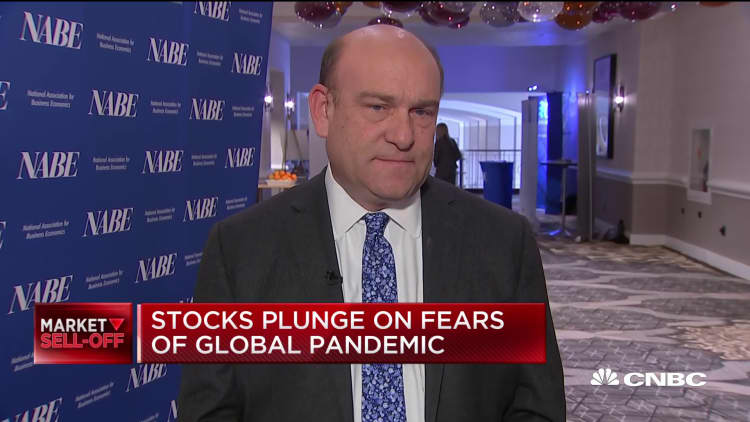While acknowledging the risks that the coronavirus spread poses, Cleveland Federal Reserve President Loretta Mester said Monday that she is not in favor of cutting interest rates.
As the latest central bank official to indicate no desire for further easing policy, Mester also indicated she wouldn't be in favor of hiking rates either, even if inflation should overshoot the Fed's 2% target.
"My current view is that monetary policy is well calibrated to support our dual mandate goals, and a patient approach to policy changes is appropriate unless there is a material change to the outlook," Mester said in remarks delivered in Washington, D.C.
Markets have been pressuring the Fed for more rate cuts, particularly as the coronavirus problem has worsened.
Mester called the situation a "downside risk" to her economic forecast and said she and her colleagues will continue to watch developments.

"This might mean a larger negative impact on growth in China in the near term but perhaps a less protracted one," she said. "At this point, it is difficult to assess the magnitude of the economic effects, but this new source of uncertainty is something I will be carefully monitoring."
In addition to dealing with broader growth questions, the Fed has been enmeshed in trying to prop up inflation. Mester's prescription entails allowing inflation to run "somewhat above" 2% without tightening, but not taking any steps to loosen policy.
"I would not favor that at this time," she said. "In my view, doing so would raise the risk of generating imbalances that would threaten the expansion and undermine our employment goal."
She cited "elevated" prices for stocks and commercial real estate, high levels of corporate debt ad weak underwriting standards on leveraged loans that cutting rates could exacerbate.


